India crucial global partner for a sustainable energy transition
In an exclusive interview, Francesco La Camera, Director-General of the International Renewable Energy Agency (IRENA), describes why India is at the epicentre of advancing the global conversation on energy transition, especially during the year of its G20 Presidency.
What are you looking forward to at the inaugural India Energy Week?
I look forward to sharing IRENA’s knowledge and expertise on global energy security challenges and future supply chains. The event also presents an opportunity for the agency to listen closely to the perspectives of governments, stakeholders and experts and identify pressing challenges that we can partner with India on.
How important is India Energy Week 2023 for advancing the global conversation on energy transition?
India Energy Week comes at a critical time of pressing energy security challenges that could have lasting long-term impacts. The event addresses a wide range of complex energy transition issues. Its diverse agenda covers both technical challenges and broader strategic considerations for countries and industries. This multi-level and multi-perspective approach is crucial for addressing mounting global energy challenges.
India currently holds the Presidency of G20 as well as the 13th session of the IRENA Assembly. How important is India to the future of the global energy ecosystem?
India is playing a critical role in enabling cost-effective decarbonisation both domestically and across Asia, making it a crucial partner in the global effort to transition to sustainable energy. The world heard the 13th Assembly President, H.E. Raj Kumar Singh’s message loud and clear: “the energy transition is not just a priority in these defining times, but a responsibility for countries, industries, and communities.”
We welcome India’s commitment to advance the energy transition and for placing it at the top of the G20 agenda. We are already working on priority areas for the country in the context of the G20 such as low-carbon steel and cost-effective financing of the energy transition.
How is IRENA enabling governments to align efforts to build a new energy system and deliver on the Paris Agreement goals? What more does the industry and the international community need to do to achieve their net zero goals?
We have little time left to act. Realising the sustainable development agenda, while ensuring a stable and affordable energy supply for people and communities, demands concerted global action. IRENA’s core mission is to serve its global membership in their transition to a renewables-based energy system. The Agency offers support across the entire energy transition value chain, including knowledge, technology and policy advice but also facilitating access to finance and project deployment around the world.
As the leading global energy transition platform, IRENA also gathers governments, private sector, the finance community and international organisations to promote collaboration and knowledge sharing between countries and industries.
What are your key takeaways from the recently concluded 13th session of the IRENA Assembly?
The discussions at the Assembly were diverse in topic and scope, but there was broad consensus that a renewables-based energy transition is the most effective solution to address the energy crisis and that 2023 will be a critical year to drive action.
In the joint commitment to unlock action and drive progress, IRENA Members also kick-started a critical discussion on the Global Stocktake ahead of COP28 which takes place later this year in the UAE. Through IRENA’s contribution to the Global Stocktake, the Agency continues to demonstrate that renewables-based energy transitions are technically feasible, economically viable and, if properly managed, a source of solutions to policy priorities such as job creation, industrial development, energy security and universal access.
How are developments in the renewable energy sector today shaping the future of sustainable industrial development, supply chains, and energy security?
Renewables are already the most affordable way to produce power and, with innovations like green hydrogen, are also becoming increasingly feasible as an effective decarbonisation solution for the most hard-to-abate sectors in industry and transport like steelmaking and shipping. We clearly see that a decentralised energy system is favoured by people and planet, however, our current energy infrastructure is not yet optimised for it.
Current grids, legal frameworks, institutional capacities and financial mechanisms are designed for a centralised fossil fuel-based system that is no longer reliant nor sustainable. We must re-design our infrastructure to take advantage of indigenous resources and promote local economic growth, employment, and improved energy security.
KEEPING THE ENERGY INDUSTRY CONNECTED
Subscribe to our newsletter and get the best of Energy Connects directly to your inbox each week.
By subscribing, you agree to the processing of your personal data by dmg events as described in the Privacy Policy.

CSIS: long-term LNG demand to reshape global export capacity growth
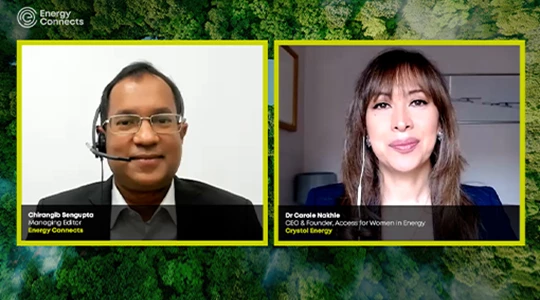
More women in energy vital to the industry’s success
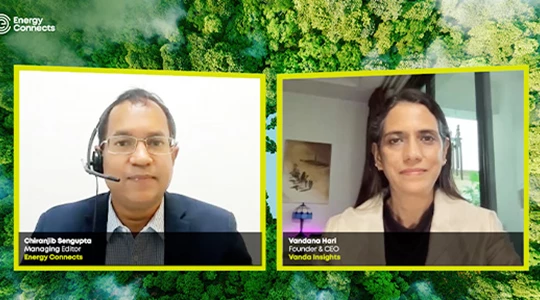
India’s energy sector presents lucrative opportunities for global companies
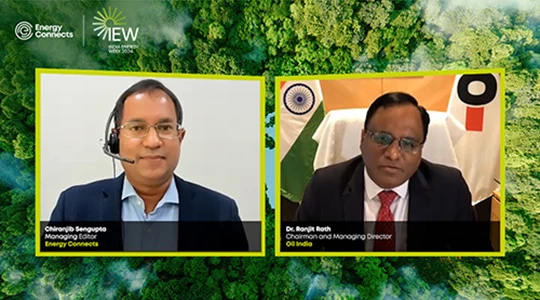
Oil India charts the course to ambitious energy growth
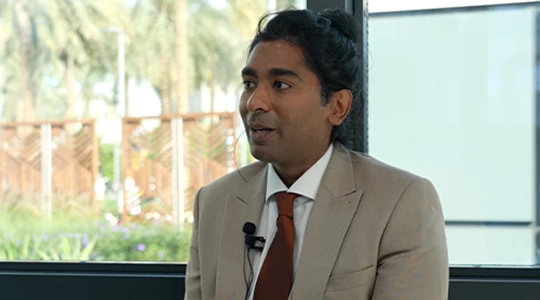
Maritime sector is stepping up to the challenges of decarbonisation
Partner content

Navigating the trading seas: exploring the significance of benchmarks

Back to the Future(s): the best commodities benchmarks are still physically settled

Ebara Elliott Energy offers a range of products for a sustainable energy economy
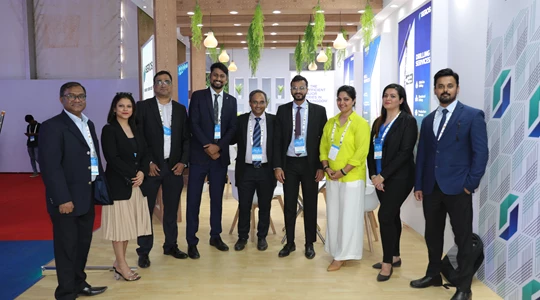
Essar outlines how its CBM contribution is bolstering for India’s energy landscape
































